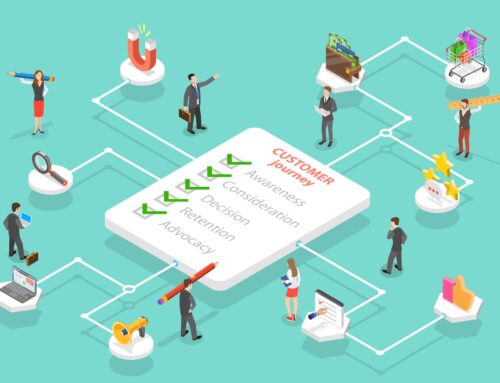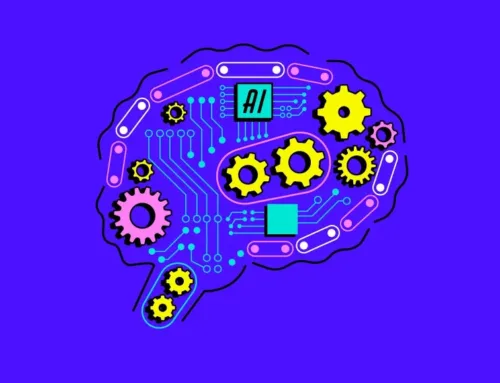The Future of Paid Ads: What AI Really Means for PPC Marketers
PPC marketers live and die by their spreadsheets. Hours tweaking bids, manually testing ad copy, and living off the adrenaline rush of beating competitors by a penny. Fast forward to 2025, and the game looks completely different.
The Future of Paid Ads: What AI Really Means for PPC Marketers
PPC marketers live and die by their spreadsheets. Hours tweaking bids, manually testing ad copy, and living off the adrenaline rush of beating competitors by a penny. Fast forward to 2025, and the game looks completely different.
smart bidding to predictive targeting, AI is shaping how ads are bought, sold, and served. And here’s the kicker: it’s not just about saving time. It’s about whether you’ll survive as a marketer in the new AI-driven landscape.
This isn’t a doom-and-gloom story. It’s a wake-up call. Let’s unpack what AI really means for PPC marketers, what’s changing, and how you can stay ahead instead of getting steamrolled.
AI in PPC: Where We Are Right Now
AI has quietly taken over the boring (but vital) parts of PPC:
Smart Bidding: Algorithms adjust bids in real time based on dozens of signals (device, time, location, audience).
Responsive Search Ads: AI mixes and matches your headlines and descriptions to find the best performers.
Audience Targeting: Machine learning predicts who’s most likely to convert based on behaviour patterns.
Performance Max Campaigns: Google takes control of placements across Search, Display, YouTube, and more.
Marketers used to do these tasks manually. Now? Algorithms crunch more data in seconds than you could in a month.
The Upside: Why AI Is a PPC Marketer’s Best Friend
1. Efficiency at Scale
Forget micromanaging 500 ad groups. AI automates the grunt work so you can focus on strategy.
2. Better Predictions
AI models don’t guess – they use past behaviour and real-time signals to predict who’s about to click and convert.
3. Personalisation on Steroids
Dynamic ads can tailor messages down to the individual level, matching interests, demographics, and even browsing intent.
4. Cross-Channel Mastery
AI doesn’t care if your audience is on YouTube, Gmail, or TikTok. It optimises across platforms seamlessly.
In short: AI does the heavy lifting, freeing marketers to do what humans do best — creative strategy and brand positioning.
The Downside: What Marketers Lose
AI isn’t all sunshine. Let’s be blunt about what’s slipping through our fingers.
Control: Black-box algorithms make decisions you can’t always explain. Want to know why Google bid £3.75 on that keyword? Good luck.
Transparency: AI prioritises outcomes (conversions) but hides the details. Reporting is less granular than old-school PPC managers love.
Differentiation: If everyone uses the same AI features, campaigns risk looking the same. Cookie-cutter ads are the enemy of brand stand-out.
Skills Gap: Old bid-jockeying skills are irrelevant. If you’re not levelling up, you’re obsolete.
The Future of PPC in an AI-Driven World
1. Humans = Strategists, Not Operators
The marketer’s role shifts from micromanaging bids to defining big-picture strategy:
Setting objectives.
Crafting creative that stands out.
Feeding AI the right inputs (because bad data in = bad results out).
2. First-Party Data Becomes Gold
With privacy regulations and cookie death, AI thrives on the data you own. Businesses that collect and use first-party data (email lists, CRM, customer behaviour) will crush it.
3. Creative Is the Last Differentiator
If AI optimises bids and placements for everyone, your creative is the battlefield.
Compelling copy.
Thumb-stopping visuals.
Emotional storytelling.
These are things machines can’t fully replicate (yet).
4. AI + Human Collaboration
The winners aren’t AI or humans. It’s the ones who figure out how to work together. AI optimises; humans contextualise.
What PPC Marketers Should Do Now
Embrace Automation, Don’t Fight It
Manual bidding is dead. Learn to steer the machine, not outwork it.Invest in Creative Skills
Copywriting, storytelling, design – the parts AI struggles with are now your superpowers.Double Down on Data
Own your customer data, segment it smartly, and feed it back into campaigns.Stay Curious About AI Tools
From ChatGPT ad draft generators to AI analytics, experiment. The tools won’t replace you if you learn to use them better than competitors.Measure What Matters
AI optimises for clicks and conversions. You need to align campaigns with actual business outcomes (profit, lifetime value).
Common Mistakes to Avoid
Blind Trust in AI: “Set it and forget it” is a recipe for wasted budget. Always monitor performance.
Chasing Vanity Metrics: Clicks mean nothing if revenue doesn’t follow.
Copy-Paste Campaigns: If your ads look like everyone else’s, you’ve lost before you began.
Neglecting Brand Voice: Algorithms can’t capture your brand personality — that’s your job.
A Quick Reality Check
AI won’t steal your job. But a PPC marketer using AI might.
Your value now lies in:
Knowing your audience better than the algorithm.
Crafting stories AI can’t.
Turning AI insights into business strategy.
If you can do that, you’ll be the PPC marketer who thrives in the AI age instead of the one writing bitter LinkedIn posts about “back in my day.”
The future of paid ads is clear: AI runs the back-end, humans run the front-end. You’re not a bid manager anymore; you’re a strategist, a storyteller, and a data interpreter.
Marketers who cling to the past will fade. Marketers who embrace AI, master creative, and obsess over customer experience? They’ll own the future of PPC.
So stop worrying about what AI might take away. Start focusing on what it gives you: the chance to do higher-value, more creative, and more impactful marketing than ever before.




